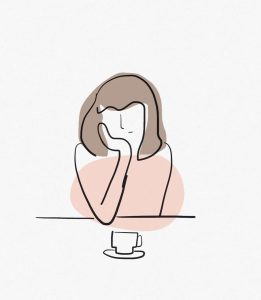Introduction
So many people arrive in therapy saying the same thing: “I feel stuck.” It can feel that way when, no matter how hard you try, nothing seems to shift — leaving life feeling overwhelming and making it hard to see a way forward.
But the truth is, you’re not broken. Feeling stuck isn’t a personal flaw; it’s often a signal that something in your life, relationships, or history needs attention.
Therapy gives you a safe, non-judgmental space to explore that feeling, understand where it comes from, and begin to move forward.
Why Do I Feel Stuck in Life?
There are many reasons you might feel weighed down or unable to move forward:
- Unresolved experiences — past hurts, losses, or traumas that never had space to heal.
- Relentless demands — work, caring responsibilities, or health struggles that leave you drained.
- Critical inner voice — a running commentary that says you’re failing, not enough, or falling behind.
- Disconnection — from yourself, from others, or from the life you imagined you’d be living.
You may even find yourself thinking, “I should be able to get on with things,” but instead you feel stuck in the same cycle.
 When life feels tangled and overwhelming, it’s hard to know where to begin.
When life feels tangled and overwhelming, it’s hard to know where to begin.
When Stuck Feels Impossible to Shift
When you feel stuck, it’s often an indication that something needs to change — but knowing what or where to start can feel impossible. You might recognise the advice you’ve been given (“exercise more,” “set boundaries,” “be more positive”) but find you can’t follow through. That can add another layer of frustration or self-blame.
Sometimes the key to change isn’t about moulding your life to fit someone else’s expectations. It’s about working with your own strengths and abilities, and taking small, sustainable steps forward.
In therapy, this can mean exploring the roots of certain thoughts or behaviours — asking not just “what’s wrong with me?”but “how is this pattern serving me?” and “what could support me better now?”
You're Not Broken
It’s common to think: “Something is wrong with me.” But feeling stuck doesn’t mean you’re broken. It’s often a sign that your coping strategies have been stretched too thin, or that you’ve had to survive without enough support.
Therapy isn’t about “fixing” you, because you were never broken to begin with. It’s about helping you understand yourself with compassion and finding a way forward.
How Therapy Helps When You Feel Stuck
As an integrative therapist, I draw on different approaches depending on what each person needs. That can include:
- Making sense of patterns — noticing how old stories or experiences still shape your present.
- Exploring feelings safely — giving space to emotions that may have been pushed down.
- Building new tools — practical strategies for managing anxiety, low mood, or self-criticism.
- Reconnecting with yourself — finding your voice, your boundaries, and your strengths.
In my Canterbury practice — and online — I work with people who feel stuck in all kinds of ways, helping them find clarity, confidence, and new ways forward.
What It’s Like to Take That First Step
Sitting down with me, you can expect a space where you don’t have to hold anything back or make yourself smaller. You’ll be met with warmth, empathy, and curiosity — not judgment or pressure.
Sometimes our sessions may feel like a gentle untangling of what’s been weighing you down; other times they may feel more practical, focused on small steps you can take to ease daily life.
My role isn’t to give you all the answers, but to walk alongside you while you find your own. Together, we’ll create a pace and a rhythm that feels right for you — so change feels possible, not overwhelming.
 Therapy can be a space to pause, reflect, and find new ways of moving forward..
Therapy can be a space to pause, reflect, and find new ways of moving forward..
Conclusion
You don’t have to keep feeling broken — or stuck. Feeling stuck can be painful, but it isn’t permanent. With the right support, new ways of seeing, feeling, and responding can begin to open up.
If you can imagine yourself in that safe space — being listened to without judgment, having time just for you, and beginning to untangle what’s been weighing you down — then you’ve already taken the first step.
If this resonates with you, I offer sessions online and face to face from my practice in Canterbury. You’re welcome to get in touch to arrange an initial conversation and see bow therapy could support you. I offer therapy online and in person.
🪷 Written by Hannah Metternich, trauma-informed integrative therapist and ADHD‑informed practitioner based in Canterbury, UK.
